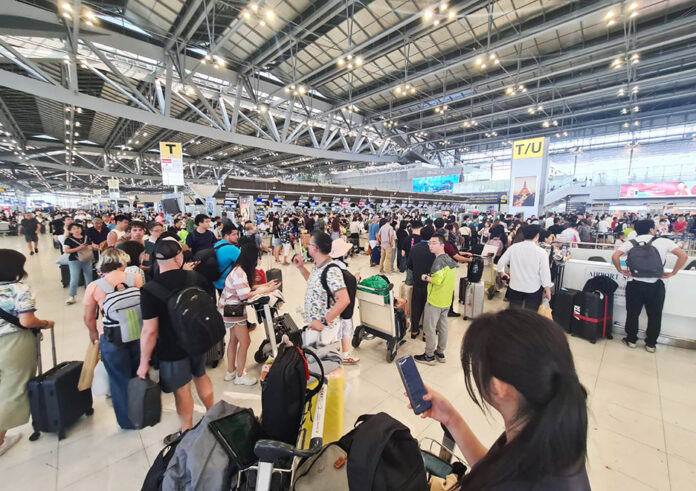Thailand Urged to Proceed Cautiously with Visa-Free Entry Scheme Revisions Amid Crime Concerns
BANGKOK — Prime Minister Paetongtarn Shinawatra has approved a review of Thailand’s visa-free entry policy, following increasing concerns over foreign tourists violating local laws, according to a statement from the Public Relations Department on April 27.
The current visa-exemption scheme allows citizens from 93 countries and territories to enter Thailand for tourism or urgent work for up to 60 days, with a possible 30-day extension. However, a surge in reports of foreign nationals overstaying visas, working illegally, committing theft, and engaging in more serious crimes has prompted authorities to reassess the program.
The tipping point came after the shocking arrest of a Chinese national, Fu Tongyuan, accused of brutally murdering a 25-year-old Thai transgender woman in Pattaya on April 26. The suspect was apprehended at Suvarnabhumi Airport while attempting to flee, bearing visible scratch wounds and reportedly unable to pass through the automated immigration gate. He later confessed to the murder, though evidence suggests it was premeditated.
This incident has reignited debate over the risks of a loosely monitored visa policy. Critics argue that the open-door approach, intended to boost tourism, has inadvertently created opportunities for criminal elements to enter the country undetected—many of whom have no prior criminal records.
From May 1, the government will implement a new digital arrival card system, replacing the TM6 paper form. The Thai Digital Arrival Card (TDAC) is expected to streamline immigration, health, visa, and customs procedures. However, officials have yet to confirm whether the system will assist in criminal background checks or improve the screening of incoming travelers.
Authorities emphasize that while changes to the visa-free program are necessary, they must be carefully considered, inclusive, and fair. Experts warn against hasty policy shifts that could confuse travelers and damage Thailand’s reputation as a tourist-friendly destination.
Stakeholders from the tourism sector, immigration authorities, and law enforcement are expected to be consulted before any major revisions are finalized. A public hearing has also been suggested to ensure transparency and accountability.
Officials reiterated that revisions should not disproportionately target or discriminate against any specific nationality, and that long-term policy stability is critical to maintaining global confidence in Thailand’s travel environment.





